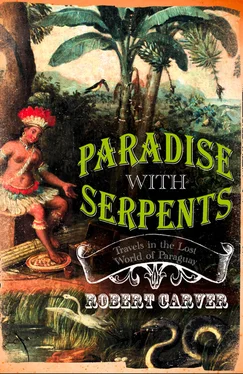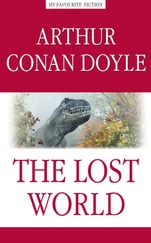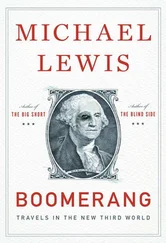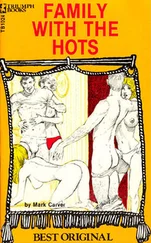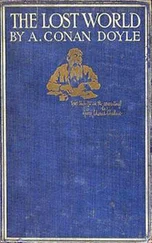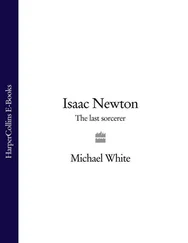As he talked and I plied him with questions I looked out through the window, intrigued by my first sight of Paraguay on the ground. The earth was deep, laterite ochre red, the road pitted and ancient tarmac. As we came closer to the centre of Asunción the gardens grew lusher with tropical foliage, glossy green, sometimes studded with bright flowers. There were fine stucco houses of an Italianate style with red tile roofs, though everywhere was an air of decay and dereliction. The cars were surprisingly modern and the traffic busy. My premonition at the money changer at the airport that the bus fare would be tiny was correct. The fare turned out to be 1,300 guarani – about 25 US cents. Luis had told me that a 5,000 guarani note was ‘too big’ to expect the driver to change for a ticket. In the end Luis had put in 100 guaranis of his own money for my ticket, as I had only two hundreds.
I asked Luis what he thought of the hotel I had selected. It was near the Plaza Independencia. He made a face. ‘Not good. A very bad area. Much crime, robberies, prostitution, drugs, alcoholics.’ I rapidly changed my plans. The Hotel Embajador met with slightly more approval. ‘A better area – near the business district.’ There’s nothing like local knowledge and a local warning. He was kind enough to get off the bus by the Embajador and show me where it was. We shook hands and he departed. Just before he left he said, ‘Oh, and by the way, tomorrow is the annual census. Everything will be shut – everything. Everyone has to be off the streets for the whole day. No buses run, no taxis, nothing.’ As we had been talking on the bus he had asked me casually ‘Which part of Brazil do you come from?’ I said, ‘I’m English. From England.’ He creased up his face as if in slight pain and waved his hand in front of his chest, ‘Ohh – so far away …’ First an ambassador, then a traveller from Brazil. Paraguay was very different to anywhere I had ever been before. It was quite simply one of the most remote countries in the world, about which almost no one knew anything, which almost no one went to, and almost no one came from – or indeed ever came back from. I felt heartened by this, but also daunted. I felt very much alone and friendless. If anything happened to me out here no one would know or care. Paraguay was a place in which one could disappear without trace.
The heat of the tropical night faded after midnight; the dull roar of traffic was replaced by an absolute calm. I slept fitfully and woke at dawn, faint pale light creeping down the yellowing wall of my room, the shutters casting a shimmering tracery of dark and pallid shadow, a mobile set of bars ominously like those of a prison. I dressed and went out into the open patio. The pot plants and creepers snaked up towards the pale, faintly azured sky, still star-flecked. Leprous walls peeled and sagged, dead plaster like the mummified flesh of a long-buried corpse. Old, decrepit chairs sprawled as if cast away in some deserted, abandoned Spanish posada of a hundred years ago. Dust lay thick on the tiled floor. The shutters’ grey-ochre paint had blistered and flaked, the colour bleached away by heat and sun. The air smelt cool and earthy; I could hear birds twittering.
The Hotel Embajador had seen better days. It felt like something out of a Graham Greene novel – a place in old West Africa, pre-war Liberia, perhaps. I seemed to be the only guest. This was the sort of place Scobie had committed suicide in, I reflected. There was no air-conditioning and the electric bulbs had no shades. The walls were smeared with squashed mosquitoes and I had itched all night; I suspected bedbugs.
The young lad who had booked me in the night before was asleep on a couch in the foyer, fully dressed, with his shoes off. The hotel was on the first, second and third floors of a city centre building. I tiptoed to the open window and glanced out – the shutters were pulled back and the window open. The street below was deserted. A large Paraguayan flag hung idly from a 19th-century Parisian-inspired corner-building opposite, and on the top of the flagpole squatted a vulture, hunkered down, apparently asleep. Inside the hotel, on the wall opposite, above the sleeping boy, hung a gold-coloured plastic representation of Don Quixote, Sancho Panza, and the Don’s horse Rosinante. Windmills were the backdrop. Wherever you travel in the Hispanic world, you are sure to meet Don Quixote, not just as wall decoration, but in person, and Paraguay was to prove no exception.
The lad awoke with a start and gave me a sleepy, friendly smile. I beckoned to the list of refreshments advertised on the wall. Coffee, rolls, cheese sandwiches, soft drinks – what was available, I asked? He looked sheepish. ‘The woman who does the coffee and rolls and sandwiches won’t be in today – because of the census. No one can move. I have to stay here all day.’ I tried to persuade him to make me a cup of coffee – surely that at least was possible? But it wasn’t. He didn’t know how, or where the things were. I settled for a Coca-Cola, then went downstairs and out on to the silent streets.
The capital of Paraguay was as empty as if a nerve gas strike had wiped out the entire population in their sleep. Not a soul stirred, not a car, not a bus or taxi moved. It was now 6.30am. On a normal day in such a tropical city the place would already be bustling. I took my black bag with me and my cameras. The best photographs I was ever going to get without being disturbed or harassed would surely be today.
It was by now 7.30, and the first groups of students carrying clipboards began to move about from building to building. These were the sharp-end censors who did the actual counting. On the corners of the blocks, soldiers and armed police had appeared, standing in pairs. Trucks drove around dropping them off. I noticed the soldiers were all small and dark, and when I strode by they avoided my eyes and instead looked at the ground or into the middle distance. With my purposeful air, my black bag and my camera, it was evident that they thought I was something to do with the census, and a figure of authority. Much later, when I asked Gabriella d’Estigarribia what impression I made on the local people she had smiled and said, ‘They think you are a German from the Technical Service. You stride about, and look angry, and stare at people. Johnny Walker! Very gringo and dangerous. You frighten them.’
This was a blow, I confess. I had thought I made a slightly better impression. The Technical Service was the euphemism given to the secret police who did the torturing under General Stroessner’s regime, and who had not gone away after his fall. What was evident on this my first morning’s walkabout was that at six foot I was very tall, and also very white, and the ordinary soldiers and police were very small and dark, and that the small dark people shrank from the tall white people in Paraguay, when they thought they had power. You wear your continent’s history on your face, in your build, and in your skin colour. Whether I was Brazilian, German or British did not particularly matter: I was a white European in a country and a continent that had been conquered by tall white people, and whose descendants still largely owned, controlled and dominated it to this day, along with much of the rest of the world. It was not a comfortable realization. However liberal, however multicultural one felt oneself to be, in this continent one’s safety, even one’s continued physical existence depended upon being defended by a corrupt and unjustifiably empowered regime’s police force, of which one felt afraid oneself. It is possible to forget you are white if you live in Europe: in the Third World it never is.
As I roamed about taking photo after photo, I wondered whether I, too, was supposed to be indoors along with everyone else. No one challenged me, but if they did I had a feeling that simply saying I was a gringo turista was not going to be a good enough excuse. But I wasn’t challenged, far from it – I was obviously avoided and ignored, and so I wandered about with increasing confidence. There simply were no tourists in Asunción, I realized, so my movements were interpreted as being in some inscrutable way official. Better not to ask, they would be thinking – I might make trouble for myself.
Читать дальше
